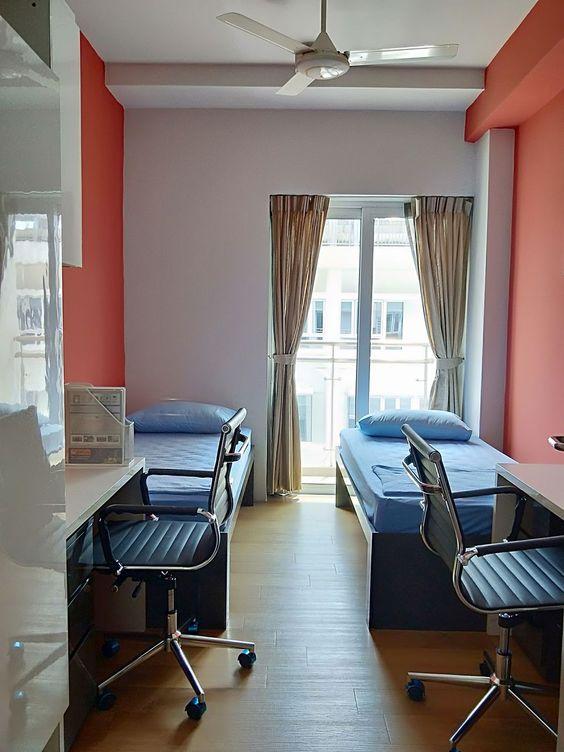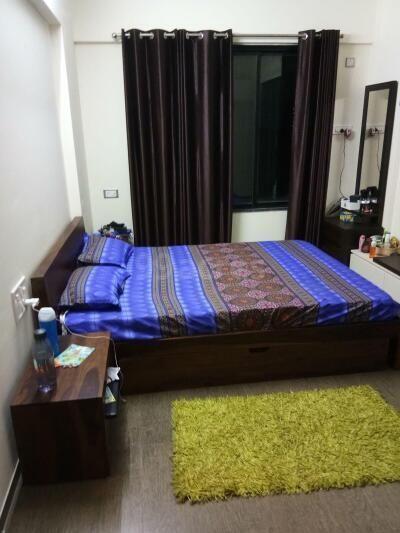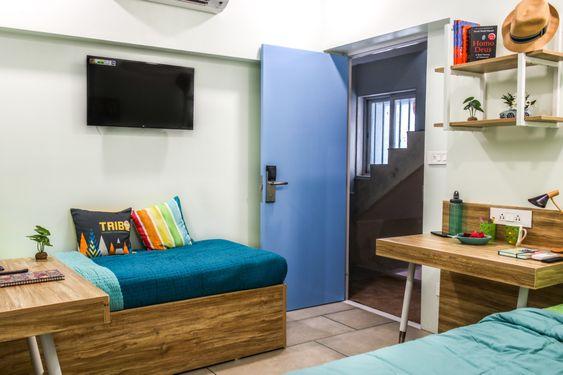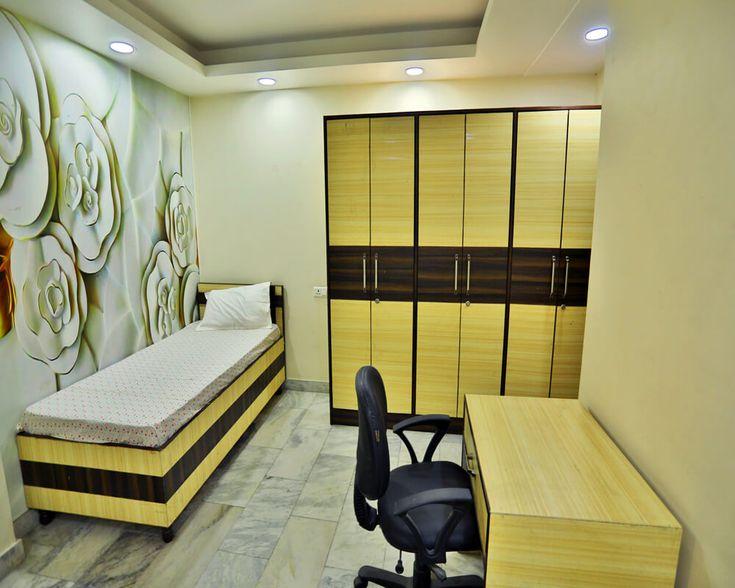

Table of Contents
- Introduction to Hostels and PGs
- Key Differences Between Hostels and PGs
- Pros and Cons of Hostels
- Pros and Cons of PGs
- Choosing Between Hostel and PG
- Conclusion
- Faq's
Finding suitable accommodation is a critical aspect of moving to a new city, especially for students and working professionals. In India, the two most popular choices for such accommodations are hostels and PGs (Paying Guest accommodations). Both options come with their unique set of advantages and disadvantages, and choosing the right one depends on various factors such as budget, lifestyle preferences, and requirements. This article delves into the differences between hostels and PGs, helping you make an informed decision.
Introduction to Hostels and PGs
Hostels, by definition, are budget-friendly accommodations that have long been associated with student housing. These facilities often provide dormitory-style living spaces, where multiple beds are arranged in a single room, promoting a community-like atmosphere. Hostels are typically affiliated with educational institutions, such as colleges and universities, which offer these accommodations to their students. This affiliation ensures that the hostels adhere to certain standards and regulations, providing a safe and structured environment for young adults. Besides institutional hostels, there are also independent hostels run by private entities or non-profit organizations, which cater to both students and budget-conscious travelers.
 Hostel Room
Hostel Room
Image Source: Pinterest
The primary objective of hostels is to create an environment that encourages social interaction and communal living. Shared facilities, such as bathrooms, kitchens, and common rooms, are integral parts of hostel life, fostering a sense of camaraderie among residents. This communal setup not only helps in building friendships and networks but also enhances the overall living experience by creating a supportive community. Many hostels also organize group activities, events, and outings, further strengthening the bonds among residents and creating a vibrant, interactive atmosphere.
PGs (Paying Guest accommodations), on the other hand, represent a different model of accommodation. These are usually privately owned residences where tenants rent individual rooms and share common facilities like bathrooms, kitchens, and living areas. Unlike hostels, which are often geared towards students, PGs cater to a broader audience, including both students and working professionals. The PG setup offers a more personalized living experience, with residents enjoying more privacy and comfort compared to the dormitory-style living in hostels. Each PG accommodation varies in terms of the level of comfort, amenities, and services provided, depending on the preferences of the owner and the budget of the tenant.
 PG
PG
Image Source: Pinterest
The allure of PG accommodations lies in their ability to provide a homely environment, often with the warmth and care of a household. Many PG owners go the extra mile to ensure their tenants feel at home by offering home-cooked meals, laundry services, and even assistance with daily chores. This personalized touch makes PGs particularly appealing to those who seek a more comfortable and convenient living arrangement, without the strict rules and regulations typical of hostels. Additionally, PGs often have fewer residents compared to hostels, which means less crowding and more personalized attention to individual needs.
Key Differences Between Hostels and PGs
1. Structure and Ownership
- Hostels: Typically operated by educational institutions, non-profit organizations, or private entities. They often have multiple beds per room, creating a dormitory-like environment.
- PGs: Usually privately owned houses or apartments rented out to individuals. The setup is more homely, with fewer people sharing the space compared to hostels.
2. Facilities and Amenities
- Hostels: Basic amenities such as shared bathrooms, common rooms, and dining halls are standard. Some hostels offer additional facilities like gyms, libraries, and recreational areas.
- PGs: Provide a range of amenities depending on the owner's discretion and the rent paid. Common facilities include Wi-Fi, laundry services, and meals. Some high-end PGs offer air conditioning, attached bathrooms, and even house cleaning services.
3. Privacy and Space
- Hostels: Offer limited privacy as rooms are shared with multiple occupants. Common areas are used by all residents.
- PGs: Provide more privacy, with options for single or double occupancy rooms. Common areas are shared, but the overall number of residents is lower than in hostels.
4. Cost
- Hostels: Generally more affordable due to the shared nature of living spaces and basic amenities.
- PGs: Vary widely in cost depending on the location, facilities, and level of service. While some PGs are budget-friendly, others, especially in prime locations, can be quite expensive.
5. Rules and Regulations
- Hostels: Have strict rules and regulations regarding entry and exit times, visitors, and behavior. These are enforced to ensure the safety and well-being of all residents.
- PGs: Rules are more relaxed and are set by the property owner. While some PGs may have curfews and restrictions, others offer greater flexibility to tenants.
6. Food and Dining Options
- Hostels: Typically provide meals in a common dining hall. The quality and variety of food can vary, but the cost is usually included in the rent.
- PGs: Many PGs include meal options, but the quality and frequency can vary. Some PGs allow tenants to cook their own meals, providing kitchen facilities.
7. Community and Social Life
- Hostels: Encourage social interaction through shared living spaces and activities. This can be beneficial for those looking to build a social network.
- PGs: Offer a quieter, more individualized living experience. Social interaction is still possible but depends more on the individual preferences of the residents.
Aspect | Hostels | PGs (Paying Guest Accommodations) |
Structure and Ownership | Operated by educational institutions, non-profits, or private entities. Dormitory-style rooms. | Privately owned houses or apartments. Homely setup with fewer residents. |
Facilities and Amenities | Basic amenities: shared bathrooms, common rooms, dining halls. Some have gyms, libraries, etc. | Amenities vary: Wi-Fi, laundry, meals. High-end PGs may have AC, attached bathrooms, and house cleaning. |
Privacy and Space | Limited privacy. Shared rooms and common areas. | More privacy with single or double occupancy rooms. Fewer residents. |
Cost | Generally affordable due to shared spaces and basic amenities. | Costs vary widely based on location and amenities. Some can be expensive. |
Rules and Regulations | Strict rules for entry/exit, visitors, and behavior. | More relaxed rules set by the owner. Greater flexibility. |
Food and Dining Options | Meals are provided in a common dining hall, usually included in rent. | Meals are often included, but quality varies. Some allow self-cooking. |
Community and Social Life | Encourages social interaction through shared spaces and activities. | Quieter, more individualized living. Social interaction depends on residents. |
Pros and Cons of Hostels
 Hostel Room
Hostel Room
Image Source: Pinterest
Pros:
- Affordable living option.
- Opportunities for social interaction and networking.
- A structured environment with rules and regulations.
- Often located near educational institutions.
Cons:
- Limited privacy and personal space.
- Strict rules may be restrictive for some.
- Basic amenities may not meet everyone's expectations.
Pros and Cons of PGs
 PG
PG
Image Source: Pinterest
Pros:
- More privacy and personalized living space.
- Flexible rules and regulations.
- Wide range of amenities available, depending on the budget.
- Suitable for both students and working professionals.
Cons:
- Can be expensive, especially in prime locations.
- The quality of amenities and services can vary greatly.
- Less social interaction compared to hostels.
Choosing Between Hostel and PG
Choosing between a hostel and a PG depends on several factors:
Budget: If you are looking for a budget-friendly option, hostels might be more suitable. However, if you have a higher budget and prefer more privacy and better amenities, a PG could be the better choice.
Lifestyle Preferences: Consider your need for privacy, social interaction, and flexibility in rules. Hostels are great for those who enjoy a community environment, while PGs are better for those who prefer a more independent lifestyle.
Location: Proximity to your place of study or work is crucial. Hostels are often located near educational institutions, whereas PGs can be found in various residential areas, offering more options in terms of location.
Amenities: Evaluate the importance of amenities such as Wi-Fi, meals, and laundry services. PGs often offer a wider range of amenities, but hostels provide the basics at a lower cost.
Duration of Stay: For short-term stays, hostels can be more convenient and cost-effective. For longer stays, the comfort and privacy of a PG might be more appealing.
Choosing Between Hostel and PG | Hostel | PG |
Budget | More suitable for budget-friendly options. | Suitable for higher budgets, offering more privacy and better amenities. |
Lifestyle Preferences | Ideal for those who enjoy a community environment. | Better for those who prefer a more independent lifestyle. |
Location | Often located near educational institutions. | Found in various residential areas, offering more location options. |
Amenities | Provides basic amenities at a lower cost. | Offers a wider range of amenities such as Wi-Fi, meals, and laundry services. |
Duration of Stay | More convenient and cost-effective for short-term stays. | More appealing for longer stays due to increased comfort and privacy. |
Conclusion
Both hostels and PGs have their unique advantages and disadvantages. Hostels offer a community-like atmosphere with basic amenities at an affordable cost, making them ideal for students and those on a tight budget. The communal setup in hostels fosters social interaction and networking, creating a supportive environment. However, hostels also come with strict rules and limited privacy, which may not suit everyone.
On the other hand, PGs provide a more personalized living experience with greater privacy and a range of amenities. This makes them suitable for both students and working professionals who can afford a higher rent. PGs offer flexibility in terms of rules and a homely environment, often with added comforts such as home-cooked meals and laundry services. Understanding the key differences between these options and considering your specific requirements will help you make an informed decision, ensuring a comfortable and enjoyable living experience.
explore further
Latest from Editorials
More from Publications
Resources
Dwello, for every home buyer, is a way to go from 'I feel' to 'I know', at no extra cost.


